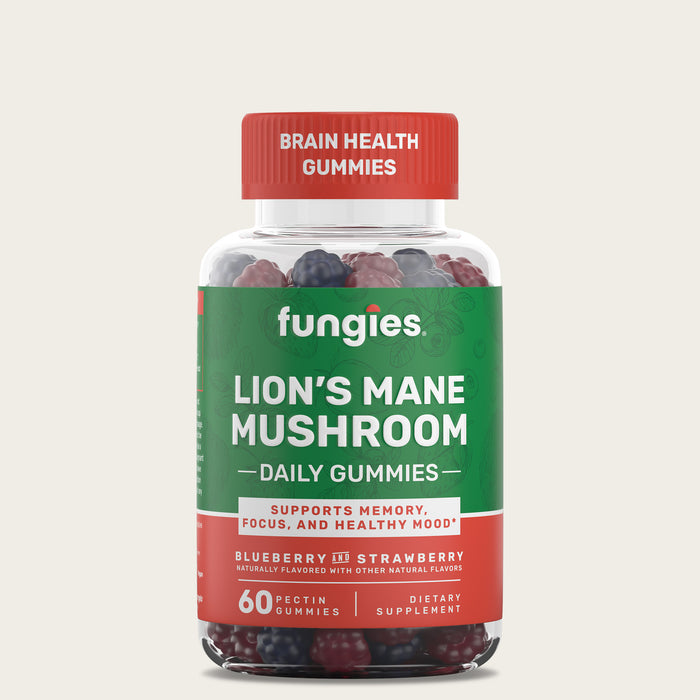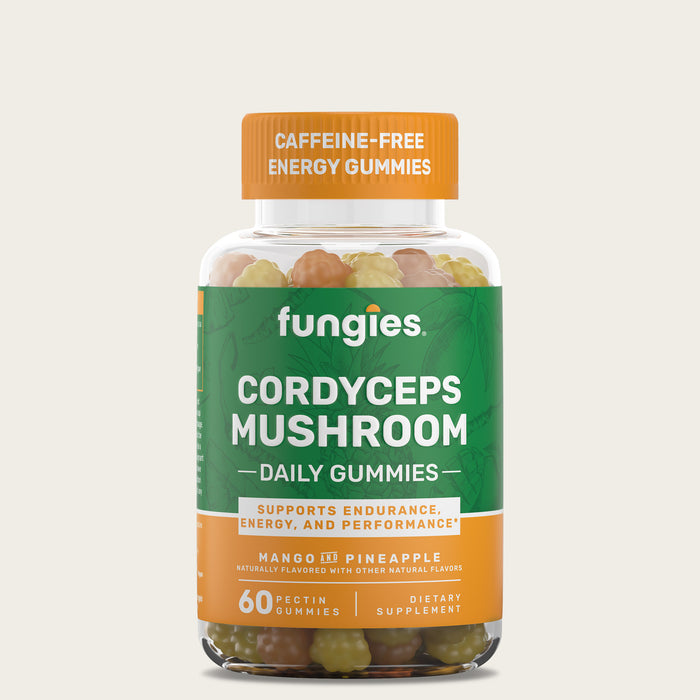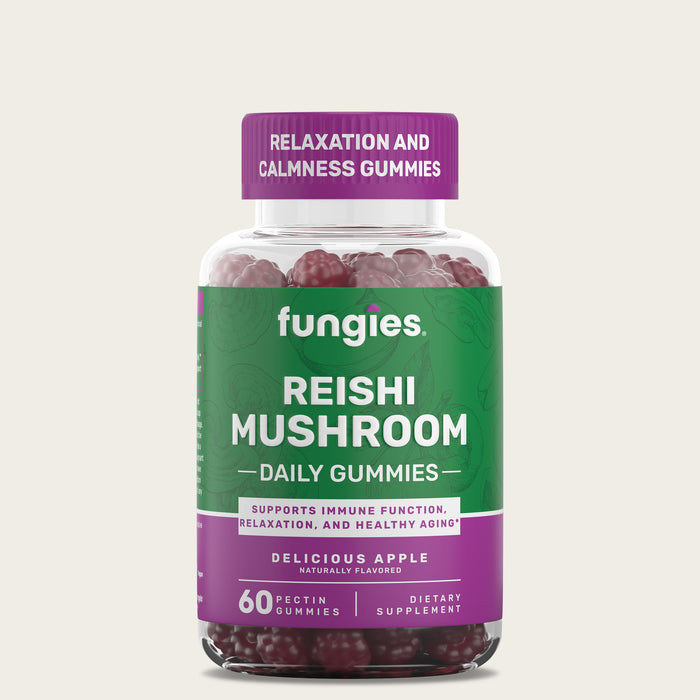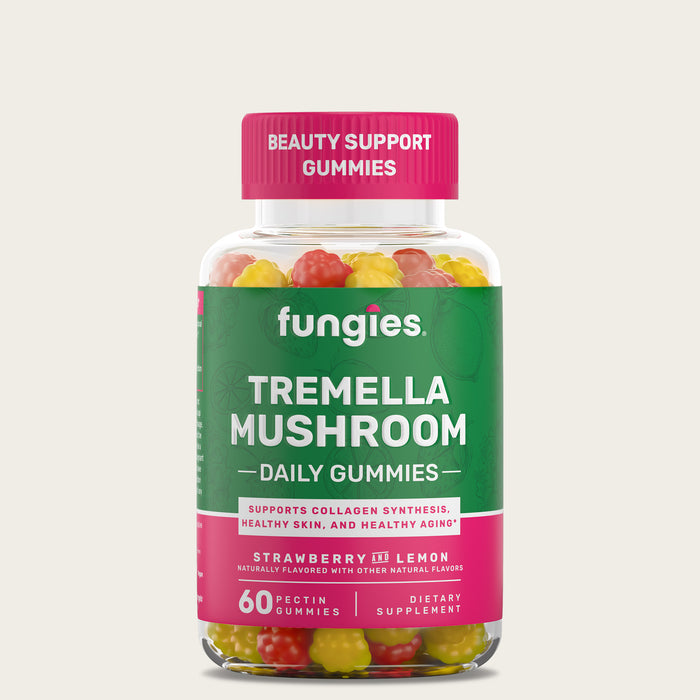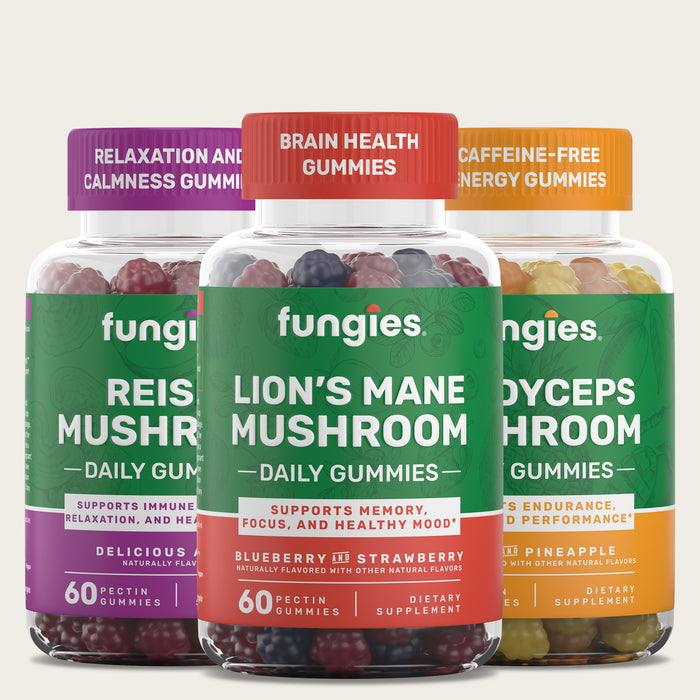

Reishi for Liver Health: The Body’s Natural Detox
Article at a Glance:
- The liver is your body's natural detoxification pathway and plays critical roles in the metabolism of nutrients.
- Lifestyle habits and exposure to toxins can contribute to an abnormal inflammatory response and oxidative stress that can injure or impair the liver.
- Reishi is a medicinal mushroom that supports healthy liver function by supporting a healthy inflammatory response and oxidative stress.
The liver, also known as the detoxification organ, is one of your body's largest and most important organs. Best known as the detoxification organ, thanks to its role in filtering blood and processing everything you take in, from food to alcohol and medicine, the liver is estimated to have hundreds of jobs essential to human health.
Lifestyle habits can either support liver function or harm it. The kinds of food you eat, your activity level, alcohol and drug use, and medications can all influence the health of your liver. Oxidative stress is believed to tax liver function and contribute to the development of problems with the liver.
Reishi is a medicinal mushroom and adaptogen with powerful antioxidant properties that can support a healthy liver.
Importance of Liver Health
The liver is essential for keeping your blood clean and healthy and turning the nutrients in the food you eat into forms your body can use.
Here are the primary jobs of your liver:[1]
- Produces bile, which supports digestion and absorption of fats and some vitamins and eliminates waste from the body
- Breaks down nutrients from the digestive system for use in the body
- Stores some vitamins and minerals
- Converts some vitamins and minerals to their active form so the body can use them
- Breaks down and filters compounds in over-the-counter and prescription drugs and supplements for use and excretion
- Metabolizes alcohol
- Filters and breaks down harmful substances for excretion in urine or feces
- Clears waste from the blood
- Synthesizes many proteins found in the blood
- It makes substances that help your blood clot when injured
- Makes cholesterol
- Stores energy reserves in the form of glycogen and converts glycogen to glucose when energy is needed.
- Stores iron and regulates hemoglobin, a compound found in red blood cells
- It assists the immune system by removing dangerous compounds from the bloodstream and produces some immune factors
- Assists in the production of some hormones
Liver detoxes are a trend in health and wellness, but your liver doesn't need to be detoxed to keep it in tip-top shape. Instead, simple daily habits can support liver function for overall health.
How to Support Liver Health
The everyday choices you make around diet, exercise, and drug and alcohol use play a large role in liver health.
The main factors that contribute to an unhealthy liver include:[1]
- Being overweight or obese
- Drinking too much alcohol
- Certain prescription medications
- Long-term use of some over-the-counter medications
- Viral infections
Fatty liver is a leading health problem caused by overconsumption food or alcohol. Excess fat or alcohol in your liver can create oxidative stress that impairs liver function. When the liver can't properly metabolize fats, fat accumulates in the liver. Left untreated, fatty liver can lead to scar tissue in the liver.[1]
Luckily, fatty liver can be prevented and/or managed with lifestyle habits, including:[1][2]
- A healthy diet that includes whole grains, fruits, vegetables, lean proteins, and healthy fats
- Limiting or avoiding alcohol
- Engaging in regular physical activity
- Working with your doctor to reduce the use of liver-impairing medications
In addition to the above, Reishi has been documented to support liver health.
Reishi for Liver Health
Reishi, also called Ganoderma lucidum or lingzhi, is a functional mushroom and adaptogen. It contains several compounds that researchers have identified as having strong antioxidant and health-supporting properties.
Researchers have been studying how one group of these Reishi compounds, triterpenoids, can benefit liver health.
Several animal studies have documented Reishi's ability to protect and heal the liver from injury. Lab animals with both toxin and alcohol-induced liver injury improved liver function and liver enzyme tests after being given extracts from Reishi mushrooms.[3][4][5]
A small 2017 study found subjects who took Reishi for six months had improvements in normal liver function. The subjects who took Reishi also had increased blood levels of glutathione, an antioxidant that helps the liver metabolize toxins.[6]
A study of over 20,000 Chinese adults found that individuals who regularly consume mushrooms have less incidence of abnormal liver function, suggesting mushrooms like Reishi contain compounds that protect against fatty buildup in the liver.[7]
Takeaway
In addition to diet and exercise, making Reishi part of your daily routine can support healthy liver function.
Fungies® Reishi Mushroom Gummies provide the equivalent of 500 milligrams of Reishi mushrooms per serving and are convenient, tasty, and vegan-friendly. Grab a bottle, or two today!
References
- Kalra A, Yetiskul E, Wehrle CJ, et al. StatPearls Publishing; 2022 Jan-. Available from: (Link)
- van der Windt, D. J., Sud, V., Zhang, H., Tsung, A., & Huang, H. (2018). Gene expression, 18(2), 89–101. (Link)
- Wu, X., Zeng, J., Hu, J., Liao, Q., Zhou, R., Zhang, P., & Chen, Z. (2013). International journal of medicinal mushrooms, 15(4), 383–391. https://doi.org/10.1615/intjmedmushr.v15.i4.60
- Wu, H., Tang, S., Huang, Z., Zhou, Q., Zhang, P., & Chen, Z. (2016). International journal of medicinal mushrooms, 18(9), 841–850. (Link)
- Lv, X. C., Wu, Q., Cao, Y. J., Lin, Y. C., Guo, W. L., Rao, P. F., Zhang, Y. Y., Chen, Y. T., Ai, L. Z., & Ni, L. (2022). Food & function, 13(10), 5820–5837. https://doi.org/10.1039/d1fo03219d
- Chiu, H. F., Fu, H. Y., Lu, Y. Y., Han, Y. C., Shen, Y. C., Venkatakrishnan, K., Golovinskaia, O., & Wang, C. K. (2017). Pharmaceutical biology, 55(1), 1041–1046. (Link)
- Zhang, S., Gu, Y., Lu, M., Fu, J., Zhang, Q., Liu, L., Meng, G., Yao, Z., Wu, H., Bao, X., Sun, S., Wang, X., Zhou, M., Jia, Q., Song, K., Wu, Y., & Niu, K. (2020). The British journal of nutrition, 123(1), 104–112. https://doi.org/10.1017/S0007114519002605
